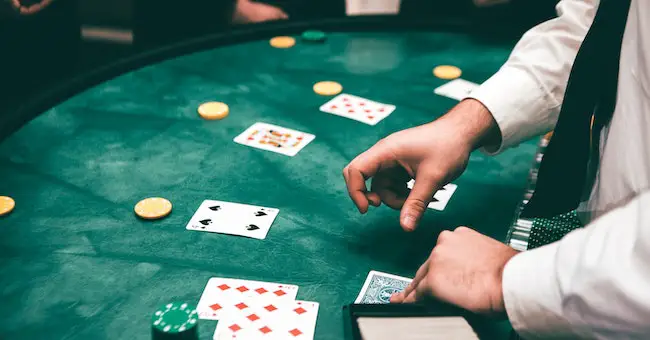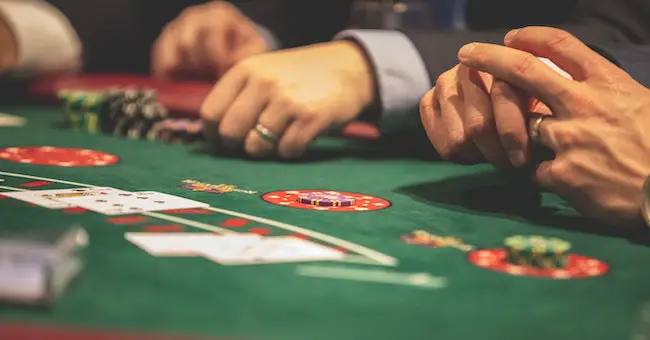How Long Do Poker Tournaments Last?
Poker tournaments typically run for a few hours, possibly five to seven, but they can range from an hour to a few days on average. The most well-known one takes place over three days.
Factors Affecting Poker Tournament Duration
Poker tournaments exist in various sizes and styles, from modest regional affairs to enormous worldwide contests. Based on several important variables, the length of a poker tournament might vary greatly. Players and tournament organizers can make more informed decisions about how long a tournament will last by being aware of these aspects.
Tournament Format
The tournament format significantly affects how long a poker event lasts. Different formats have unique rules and structures that affect how quickly the game moves. Freezeouts and rebuy tournaments are the two most popular tournament styles.
Players are eliminated from a freezeout tournament once they exhaust all their chips. Once eliminated from the tournament, a player is unable to return. Because fewer people participate as the competition goes on, freezeouts frequently have a set timeframe. Smaller freezeout competitions with fewer participants can frequently be finished in a few hours.
On the other hand, rebuy tournaments let participants rebuy chips for a limited time. Due to the ability of eliminated players to re-enter the tournament, this structure has the potential to greatly lengthen its duration. Rebuy tournaments frequently move slower since players can add to their chip stacks more. These tournaments might extend for several hours or even several days, depending on the number of rebuy intervals and the players’ aggression.
Number of Participants
The number of players greatly influences how long a poker event lasts. Reducing the field and getting to the final table typically takes longer the more players there are. Finishing large-scale tournaments with hundreds or even thousands of competitors takes several days.
The number of players directly impacts how quickly the game moves forward. Each hand takes longer to complete when there are more players since there are more choices and things to do. Larger player pools frequently require extra tables to accommodate everyone, which can further slow down play.
Large tournaments frequently use tactics to speed up the early rounds, including starting with numerous tables and progressively consolidating them as the field gets smaller. These tactics aid in maintaining a reasonable pace and stop the competition from dragging on for too long.
Common Types of Poker Tournaments
Poker tournaments provide an exciting and competitive environment for players of all skill levels. Poker tournaments come in various forms, each with special features and regulations.
Freezeout Tournaments
The simplest and most well-known poker tournament format is the freezeout. In a freezeout tournament, each player starts with a set quantity of chips and is removed from the game once they have used up all of their chips. In contrast to rebuy tournaments, players ousted from the tournament cannot re-enter it or purchase more chips.
Freezeout tournaments have a unique format, usually with increasing blinds spaced out regularly to keep the action moving. Players are under pressure to build up chips and use strategy as the blinds increase as the tournament goes on. The tournament winner is the last person standing at the final table.
Freezeout competitions are well-liked because of how straightforward and conclusive they are. Players only have one chance to reach the top, so they necessitate smart chip management and strategic choice-making.
Sit-and-Go Tournaments
SNGs, or sit-and-go tournaments, are brief competitions that begin when a preset number of participants sign up. SNGs start right away, unlike planned events that have set start times, giving them a practical option for players seeking a quick fix of poker.
Although there are variations with 2, 3, or even more tables, SNGs normally have a single table with 6 or 9 players. However, SNGs can have various rules and structures, frequently using a freezeout format. The winner receives the highest share of the payments given to the tournament’s top finishers.
Variables like participant count and blind structure have an impact on how long SNGs last. SNGs can usually be finished in an hour or two and are often shorter than longer tournaments. They are therefore well-liked by gamers looking for a fast-paced poker encounter.
Tournament Structures and Formats
For competitive games like poker, tournaments are a common format. The structure and format of a tournament greatly affects the overall experience and game dynamics.
Knockout Tournaments
Bounty tournaments, called knockout tournaments, give conventional poker tournaments an exciting new element. In these competitions, a portion of each participant’s buy-in is applied to the bounty reward pool. A financial incentive, or bounty, is given to a player who successfully eliminates another competitor from the competition.
In knockout events, players are encouraged to pursue bounties in addition to the primary prize pool, which fosters a more competitive playing atmosphere. In knockout tournaments, the goal is to balance building up your chip stack with taking out more opponents.
Although the format of knockout events can change, they frequently use freezeout or rebuy forms. Players must choose between prioritizing chips and bounties while making decisions, which adds another level of strategy and excitement to the game.
Shootout Tournaments
Shootout competitions offer a distinctive and difficult tournament format. Players in a shootout competition compete at separate tables until just one player is left at each table. The winners from each table proceed to the next round to compete against the winners from the other tables. The process is repeated until the final table, where there is only one victor.
Shootout competitions put players’ dependability and adaptability to the test. Players move through a fresh table with various opponents in each round. The format rewards players who maintain concentration and adapt their play in response to the changing dynamics of each table.
Shootout competition structures can be created in a variety of ways. While some tournaments have numerous shootout rounds, others require competitors to win one table to proceed. Shootout competitions can also be played as rebuy competitions. However, they are frequently played as freezeout competitions.
Strategies Impacting Tournament Duration
Players use a variety of methods in the world of poker tournaments to increase their chances of winning. These tactics have an impact on the duration of the tournament as well as the results of specific hands.
Aggressive Play
Experienced and competent players frequently use aggressive play to build up their chip counts quickly and put pressure on their rivals. Instead of quietly calling, aggressive players frequently wager and raise, putting their opponents in a tough position.
Aggressive play has a big effect on how fast a tournament moves. The likelihood of big pots and fights increases when players use an aggressive approach. Players may take chances and place their chips in the center of the table, hastening eliminations. As a result, aggressive players tend to advance more quickly in tournaments.
Aggressive play, though, has its dangers. Players that make poor position selections or overplay weak hands risk being eliminated early. To ensure they stay in the competition for the long run, players using an aggressive strategy must combine their aggression with wise decision-making.
Tight and Patient Play
More reserved players tend to play tight and patiently, waiting for strong hands and advantageous circumstances before betting their chips. These players prioritize value preservation and fold more frequently while avoiding pointless conflict.
This manner of play can significantly affect how long a poker event lasts. Tight and patient players prefer to stay out of high-risk positions, which lowers the frequency of all-ins and jarring chip swings. As a result, tournaments featuring a high proportion of tight and patient players could move more slowly as players waited for advantageous hands and chip-building possibilities.
Tight and patient play can have certain disadvantages, though. Players who use this tactic could miss out on chances to take advantage of weaker opponents or increase their chip stack. Additionally, if they do not actively look for opportunities to gain chips, the blinds and ants can gradually deplete their chip stacks, putting them at risk of being blinded.
Notable Poker Tournaments and Their Durations
Poker tournaments are popular worldwide because of the high stakes, fierce competition, and attraction of big prize pools. Poker tournaments can last anything from a few hours to many days, but certain prominent tournaments have earned a reputation for being long or short.
World Series of Poker Main Event
The Main Event of the World Series of Poker (WSOP) is undoubtedly the most renowned and eagerly awaited poker event in the world. Each year, hundreds of players worldwide attend it in Las Vegas. A no-limit Texas Hold’em freezeout tournament with a massive buy-in and a first-place reward of several million dollars is the main event.
The WSOP Main Event often lasts several days because of the enormous field size and the level of play demanded. The tournament has several beginning flights, each lasting a full day. Players who make it through their opening flights merge on succeeding days, gradually cutting down the field until the final table is reached. The WSOP Main Event may go on for 10 to 14 days, taking into account pauses.
Online Poker Tournaments
The convenience of playing from the comfort of their homes while fighting for significant rewards is made available to players in online poker through tournaments. The length of online poker tournaments varies, from quick-paced turbo tournaments to multi-day marathons. The tournament format, the number of players, and the pace of play all impact how long it lasts.
Compared to live tournaments, the structures of online poker tournaments are typically speedier, with shorter levels and more aggressive blind rises. Online tournaments entice players looking for a fast-paced and intense poker experience because they may frequently be finished in hours.
However, certain online poker tournaments, especially those with bigger fields or more complex structures, have longer durations. These competitions may go on for several days, with breaks between play rounds. Major online poker tournament series, like the PartyPoker Millions Online or the PokerStars World Championship of Online Poker (WCOOP), have tournaments with a range of lengths, from one-day events to weeklong games.
FAQ’s
How long do poker tournaments typically last?
The duration of poker tournaments can vary significantly depending on several factors, including the type of tournament, the number of participants, and the structure of the tournament. On average, poker tournaments can last anywhere from a few hours to several days.
Are there specific types of poker tournaments with predetermined durations?
Yes, some poker tournaments have predetermined durations. These are commonly known as turbo or hyper-turbo tournaments. In turbo tournaments, the blind levels increase at a faster pace, resulting in shorter overall durations. Hyper-turbo tournaments are even faster, with extremely short blind levels and rapid gameplay.
Can the duration of a poker tournament be extended?
In some cases, poker tournaments may be extended if the predetermined playing time is not sufficient to complete the tournament. Factors such as the number of participants remaining, the size of the prize pool, and casino or online platform policies can determine whether extensions are allowed.
How can I estimate the duration of a poker tournament?
Estimating the duration of a poker tournament can be challenging due to the various factors involved. It is helpful to consider the tournament structure, starting stack, blind levels, and average number of players remaining. However, keep in mind that poker tournaments can sometimes take longer than expected due to factors like slow play, deep-stacked play, or unforeseen circumstances.
Is there a standard duration for professional poker tournaments?
Professional poker tournaments, especially those with higher buy-ins and larger prize pools, tend to have longer durations. These tournaments can span several days or even weeks, with multiple stages and increasing blinds. The length of professional tournaments allows for more strategic play and accommodates larger fields of skilled players.
















